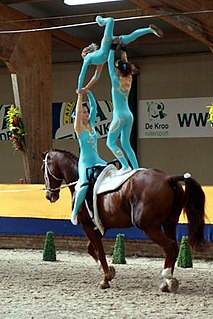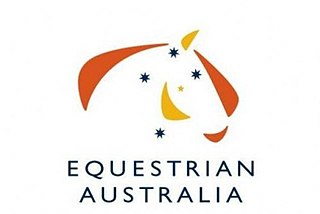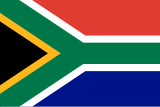
Equestrianism, commonly known as horse riding or horseback riding, includes the disciplines of riding, driving, and vaulting. This broad description includes the use of horses for practical working purposes, transportation, recreational activities, artistic or cultural exercises, and competitive sport.

A horse show is a judged exhibition of horses and ponies. Many different horse breeds and equestrian disciplines hold competitions worldwide, from local to the international levels. Most horse shows run from one to three days, sometimes longer for major, all-breed events or national and international championships in a given discipline or breed. Most shows consist of a series of different performances, called classes, wherein a group of horses with similar training or characteristics compete against one another for awards and, often, prize money.

The International Federation for Equestrian Sports is the international governing body of equestrian sports.
The FEI World Equestrian Games are the major international championships for equestrianism, and are administered by the Fédération Equestre Internationale (FEI). The games have been held every four years, halfway between sets of consecutive Summer Olympic Games, since 1990. Prior to that year, all ten of the FEI's individual disciplines held separate championships, usually in separate countries. The modern WEG runs over two weeks and, like the Olympics, the location rotates to different parts of the world. Riders and horses competing at WEG go through a rigorous selection process, and each participating country sends teams that have distinguished themselves through competition as the nation's best in each respective discipline. At the 2010 Games, 57 countries were represented by 800 people and their horses.

Equestrian vaulting, or simply vaulting, is most often described as gymnastics and dance on horseback, which can be practiced both competitively or non-competitively. Vaulting has a history as an equestrian act at circuses, but its origins stretch back at least two-thousand years. It is open to both men and women and is one of ten equestrian disciplines recognized by the International Federation for Equestrian Sports. Therapeutic or interactive vaulting is also used as an activity for children and adults who may have balance, attention, gross motor skill or social deficits.
The United States Equestrian Federation is the national governing body for most equestrian sports in the United States. It began on January 20, 1917, as the Association of American Horse Shows, later changed to the American Horse Shows Association (AHSA). In 2001, the organization changed its name to USA Equestrian (USAE) and, in 2003 it merged with the United States Equestrian Team (USET). In 2017, USEF rebranded as US Equestrian. In 2019, USEF abandoned and sold its own laboratory to the University of Kentucky.

Equestrianism made its Summer Olympics debut at the 1900 Summer Olympics in Paris, France. It disappeared until 1912, but has appeared at every Summer Olympic Games since. The current Olympic equestrian disciplines are Dressage, Eventing, and Jumping. In each discipline, both individual and team medals are awarded. Women and men compete together on equal terms.

Tent pegging is a cavalry sport of ancient origin, and is one of only ten equestrian disciplines officially recognised by the International Equestrian Federation. Used narrowly, the term refers to a specific mounted game with ground targets. More broadly, it refers to the entire class of mounted cavalry games involving pointed and edged weapons on horseback, for which the term "equestrian skill-at-arms" is also used.

Equestrian Australia (EA) is the national governing body for equestrian sports in Australia. These sports include the FEI-recognized disciplines of dressage, eventing, show jumping, equestrian vaulting, endurance riding, reining, para-equestrian, and combined driving. EA also develops and enforces the rules for other events at horse shows.
Equestrian Canada, formerly known as Equine Canada and commonly known by its acronym, EC, is Canada’s comprehensive national governing body for equestrian sport. It is the executive branch of Canada's Olympic and Paralympic equestrian teams; the national association and registry of Canadian equestrian athletes; the national regulatory body for equestrian coaches, competition organizers, and judges; and the national federation of Canadian horse breeders and Canadian breed registries.

British Equestrian is the national governing body of equestrian sport in Great Britain and represents the country at the International Federation for Equestrian Sports (FEI).

The CHIO Aachen is a popular international horse show held in Aachen, Germany, each summer.
The 2014 Alltech FEI World Equestrian Games were held in the region of Normandy, France. It was the seventh edition of the Games, which are held every four years and run by the International Federation for Equestrian Sports (FEI). For team events in the dressage, eventing, and show jumping disciplines, these Games were the first qualifying event for the 2016 Summer Olympics.
The 2011 FEI World Cup Finals in Leipzig, Germany were the Final of four World Cups in different Equestrian sports. They were held in the exhibition halls 1 and 3 at the new Leipzig Trade Fair from April 27 to May 1, 2011.
The 2011 CHIO Aachen was the 2011 edition of the CHIO Aachen, the German official horse show in five horse sport disciplines.
Para-equestrian is an equestrian sport governed by the International Federation for Equestrian Sports (FEI), and includes two competitive events: One is para-equestrian dressage, which is conducted under the same basic rules as conventional dressage, but with riders divided into different competition grades based on their functional abilities. The other is para-equestrian driving, which operates under the same basic rules as combined driving but places competitors in various grades based on their functional abilities.
The 2018 FEI World Equestrian Games were held in Mill Spring, North Carolina, U.S. at the Tryon International Equestrian Center, from September 11 to September 23, 2018. It was the eighth edition of the games, which are held every four years and run by the International Federation for Equestrian Sports (FEI). This was the second time that North America hosted the Games, the previous time being in 2010, also in the United States.
Equestrian competitions at the 2015 Pan American Games in Toronto were held from July 11 to 25 at the Caledon Equestrian Park in Palgrave. The cross-country portion of eventing took place at nearby Will O' Wind Farm, which is located in Mono. Due to naming rights the venue was known as the latter for the duration of the games. The competition was split into three disciplines, dressage, eventing and show jumping. Each discipline awarded a team and individual set of medals.
The German Equestrian Federation(Deutsche Reiterliche Vereinigung) is an umbrella organization in Germany for equestrian sports and breeding. It is the governing body for the majority of equestrian sports and their organization in Germany, including FEI-recognized disciplines of dressage, eventing, show jumping, vaulting, endurance, reining, para-equestrian, and driving. It also develops and enforces the rules for other events at horse shows. It is colloquially known as FN, short for the international term Fédération Équestre Nationale. The organisation runs the FNverlag, a publishing house for related books and other media










